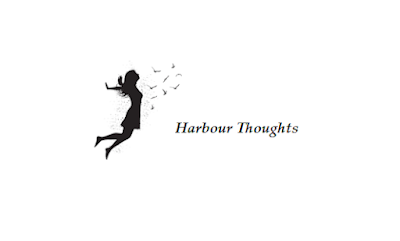T. D. McGee
By James McIntyre
Having been kindly invited as a member of the Mechanics' Institute some 25 years ago by the late Jeremiah O'Neill, Esq., to meet that gentleman in company with a number of our townsmen, when Mr. McGee was rising from the table the chair being new stuck to him, and it being near a general election he very wittily remarked that he hoped the people of Montreal would be as anxious to retain him in his seat as the people here are. We wrote the following lines at the time, the last verse was added afterwards.
D Arcy McGee,
All compliment thee,
The hope of the land
On your lecture so grand.
Though that is your forte,
Oh give us the sport
Of an hour of your chat,
Then we'll laugh and grow fat.
For none but the vile
Could 'ere cease to smile,
When near to thee
So brilliant and free.
Plant of green Erin's isle,
Long in Canadian soil,
May you take deep root
And bear much noble fruit.
Our hopes were in vain,
Alas he is slain,
By a crankish hand
The flower of the land.
Poem Analysis:
James McIntyre’s poem T. D. McGee is a lighthearted and anecdotal tribute to Thomas D’Arcy McGee, an influential Irish-Canadian politician, journalist, and poet. The poem, written in an AABB rhyme scheme, captures a humorous incident that took place during a gathering at the Mechanics' Institute. The poem is not just a playful recounting of an amusing moment but also a reflection on McGee’s political career and legacy.
Humor and Wit in Politics
At the heart of the poem is a humorous moment where McGee, upon rising from a chair that was inadvertently stuck to him, made a witty remark:
He hoped the people of Montreal would be as anxious to retain him in his seat
This clever wordplay—linking a literal chair sticking to him with the idea of political retention—highlights McGee’s quick wit. Humor was often a tool used by politicians to connect with the public, and this anecdote illustrates his charm and ability to turn even a trivial mishap into a memorable moment.
Political Symbolism
Beyond the humor, the imagery of a seat carries deeper political significance. In democratic systems, holding a seat represents power, authority, and representation. McGee’s remark cleverly draws a parallel between the physical act of being "stuck" and the metaphorical desire of constituents to keep him in office.
Given that McGee was a passionate advocate for Canadian unity and Irish immigrants, the poem subtly emphasizes the importance of political support and the electorate’s role in shaping leadership.
Tribute to a Political Legacy
Though humorous in tone, the poem also serves as a form of tribute to McGee. The fact that McIntyre penned these lines suggests admiration for McGee’s contributions. The last verse, which was added later, may have reflected on McGee’s later political impact or even his tragic assassination in 1868.
Poetic Structure and Style
- AABB Rhyme Scheme: The poem follows a simple AABB rhyme scheme, a common structure in McIntyre’s poetry. This format enhances the rhythm and musicality of the verse, making it easy to read and remember. Given that the poem recounts a lighthearted moment, this rhyming pattern aligns well with its playful tone.
- Narrative and Conversational Tone: McIntyre adopts a storytelling approach, recounting the events as if narrating a personal memory. This conversational style makes the poem feel informal and engaging, as though the reader is being let in on an amusing inside joke.
- Use of Wordplay and Irony: The poem’s humor relies on wordplay—particularly the double meaning of seat. The irony lies in how a minor inconvenience (a stuck chair) turns into a symbolic political statement. This blend of humor and subtle commentary is a hallmark of effective political poetry.
Historical and Political Context
Thomas D’Arcy McGee was a key figure in Canadian history, particularly in the movement toward Confederation. Originally from Ireland, McGee became a strong advocate for national unity and opposed the radical Irish nationalist movement known as the Fenians. His influence in shaping Canada’s early identity made him a respected leader, but also a controversial figure.
His assassination in 1868—allegedly by a Fenian sympathizer—was one of the first political assassinations in Canada. Given this historical backdrop, McIntyre’s poem, written earlier in McGee’s career, takes on added significance. What was once a lighthearted anecdote about political support gains deeper meaning in retrospect, as McGee’s "seat" in Canadian history remains firmly established despite his untimely death.
T. D. McGee by James McIntyre is more than just a humorous recollection—it is a reflection on political legacy, public support, and the power of wit in leadership. Through a simple anecdote, McIntyre captures McGee’s charisma and political relevance, making the poem a fitting tribute to one of Canada’s most influential historical figures.
While it may have been written in a moment of levity, the poem resonates with deeper themes of democracy, leadership, and the enduring memory of great political figures.
